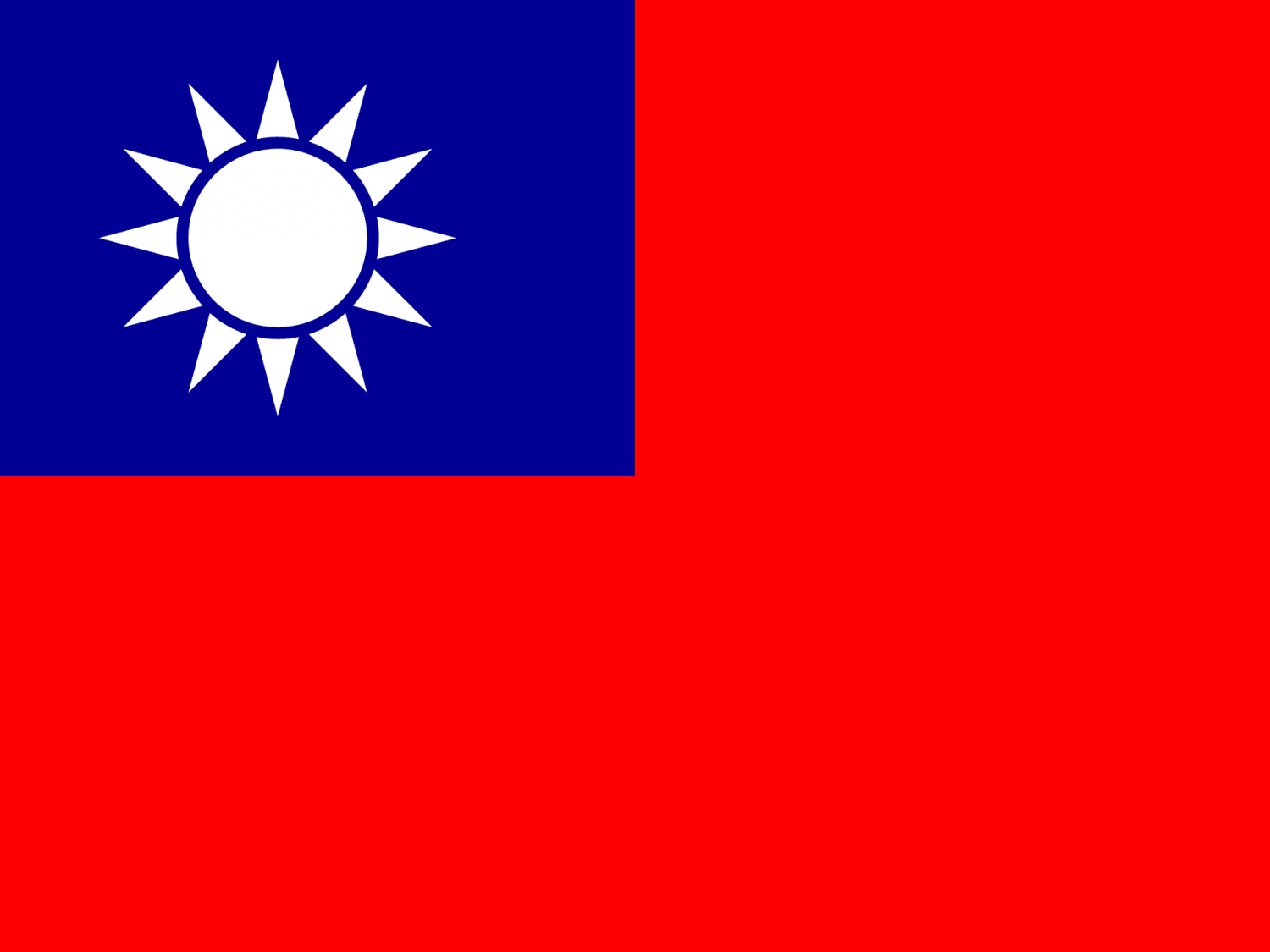Moving to Taiwan
Simply move better with reloqio
✔️ Get offers free of charge – No obligation, no worres.
✔️ Quality-tested partners – Reliable and experienced.
✔️ Selection in your region – Find the perfect offer and save up to 45%.

Overview
Introduction to Taiwan
Taiwan, an island nation off the southeastern coast of China, is known for its vibrant economy, rich culture, and stunning natural landscapes. The capital, Taipei, is a bustling metropolis that combines modernity with traditional Chinese elements, offering a high standard of living and a wide range of amenities. Taiwan is famous for its technology industry, night markets, and scenic spots like Taroko Gorge and Sun Moon Lake. The country is also known for its democratic government and progressive values. While Taiwan offers many advantages, expatriates should be aware of the political sensitivities surrounding its relationship with China and the potential for natural disasters like typhoons and earthquakes.
Why Move to Taiwan
Moving to Taiwan offers the opportunity to live in a dynamic and diverse environment. Taiwan’s strong economy, particularly in the technology and manufacturing sectors, provides numerous job opportunities for skilled professionals. The country’s excellent healthcare system, high-quality education, and efficient public transportation make it an attractive destination for expatriates. Taiwan is also known for its friendly and welcoming people, making it easier for expatriates to settle in. However, the language barrier can be a challenge, as Mandarin is the official language, and while English is widely taught, it is not universally spoken. Additionally, expatriates should be prepared for the subtropical climate, which includes hot summers and the possibility of typhoons.
Cost of Living in Taiwan
The cost of living in Taiwan is moderate compared to other major Asian cities, but it can vary depending on location and lifestyle. In Taipei, housing is the most significant expense, with rent prices varying widely depending on the area and type of accommodation. Food is relatively affordable, with a wide range of options from local street food to international cuisine. Public transportation is efficient and reasonably priced, and healthcare is both high-quality and affordable. However, imported goods and luxury items can be expensive. While Taiwan offers a high standard of living, expatriates need to budget carefully, particularly for housing and schooling if they have children.
Visa and Residency
Types of Visas
Taiwan offers several types of visas, including visitor, resident, and work visas. The work visa is the most common for expatriates and requires sponsorship from a Taiwanese employer. The application process involves submitting documents such as proof of employment, educational qualifications, and a valid passport. Visitor visas are available for short-term stays, but they do not permit employment. Resident visas are issued to those who intend to stay in Taiwan for longer periods, such as for work, study, or family reunification. It is important to apply for the correct visa type and ensure that all documentation is accurate to avoid delays or complications.
Requirements for Obtaining Residency
Obtaining residency in Taiwan typically begins with securing a work visa or resident visa. Once in the country, expatriates can apply for an Alien Resident Certificate (ARC), which is necessary for long-term stays and provides access to various services such as healthcare. The process requires submitting proof of employment, housing arrangements, and a medical examination. The ARC is generally valid for one to three years and can be renewed as long as the expatriate remains employed or meets the residency requirements. Permanent residency is available for those who have lived in Taiwan for a certain number of years and meet specific criteria, such as financial stability and language proficiency.
Renewing Residency
Renewing residency in Taiwan involves extending your work visa and Alien Resident Certificate (ARC). The renewal process typically requires submitting updated proof of employment, housing, and a medical examination. It is advisable to start the renewal process well before your current permit expires to avoid any legal issues. Employers often assist with the renewal process, but it is crucial to stay informed about any changes in immigration laws and ensure all paperwork is submitted on time. The ARC can be renewed online or at the local National Immigration Agency office.
Finding Accommodation
Popular Neighborhoods in Taiwan
In Taipei, popular neighborhoods for expatriates include Xinyi, Da’an, and Tianmu. Xinyi is known for its modern skyscrapers, luxury apartments, and proximity to shopping and entertainment options, including the famous Taipei 101. Da’an is a vibrant area with a mix of residential and commercial properties, excellent dining options, and the large Da’an Forest Park. Tianmu, located in the northern part of Taipei, is favored by expatriates with families due to its international schools, green spaces, and quieter environment. Housing in these areas can be expensive, but they offer the best amenities and conveniences for expatriates. Outside of Taipei, cities like Taichung and Kaohsiung also have expatriate-friendly neighborhoods with more affordable housing options.
Renting vs Buying Property
Renting is the most common option for expatriates in Taiwan, as property ownership can be expensive and subject to restrictions for foreigners. Rental properties are widely available, ranging from high-end apartments in urban areas to more affordable housing in suburban neighborhoods. Leases typically require a security deposit and the first month’s rent in advance. Buying property in Taiwan is possible for foreigners, but it involves navigating local property laws and may require legal assistance. The real estate market is competitive, especially in Taipei, and prices can be high. It is advisable to work with a reputable real estate agent and legal advisor if considering purchasing property in Taiwan.
Tips for Finding Accommodation
When searching for accommodation in Taiwan, consider factors such as proximity to work, access to public transportation, and availability of amenities like schools, healthcare, and shopping centers. Working with a local real estate agent can be helpful, especially for expatriates unfamiliar with the market. It is important to inspect properties carefully before signing a lease, as the quality of housing can vary widely. Be prepared to negotiate rental terms, and ensure that all lease agreements are clear and legally sound. Given the high demand for quality housing in popular areas, it is advisable to start your search early and be prepared to act quickly when you find a suitable property.
Taiwan’s location in East Asia provides easy access to neighboring countries, offering opportunities for travel and exploration. For those interested in exploring the region, the cultural richness and historical sites of Japan, the bustling cities of China, or the natural beauty of South Korea are all within reach.
Settling In
Healthcare System in Taiwan
Taiwan has a highly regarded healthcare system, with both public and private options available. The country’s National Health Insurance (NHI) system is mandatory for all residents, including expatriates with an Alien Resident Certificate (ARC). The NHI provides access to a wide range of medical services at affordable rates. Many expatriates prefer private healthcare facilities, which offer higher standards of care, shorter waiting times, and English-speaking staff. Private healthcare can be more expensive, so it is important to have comprehensive health insurance that covers these costs. Taiwan’s hospitals and clinics are modern and well-equipped, making it a reliable place for both routine and specialized medical care.
Education System in Taiwan
Taiwan offers a variety of educational options for expatriate families, including public schools, private schools, and international schools. Public schools follow the Taiwanese curriculum and teach primarily in Mandarin, which can be challenging for non-Mandarin-speaking children. Most expatriate families opt for international schools, which offer curricula based on British, American, or International Baccalaureate (IB) systems. These schools are primarily located in Taipei and are known for their high academic standards, though fees can be high. Early application is recommended, as spaces in international schools can be limited, particularly in popular grades. Taiwan also has a range of private schools that offer alternative curricula, such as Montessori or Waldorf.
Cultural Etiquette and Customs
Taiwan is a society deeply rooted in Chinese culture, with influences from Japanese and Western cultures as well. Understanding and respecting local customs is crucial for expatriates. While Taiwan is modern and relatively liberal, it is important to dress modestly, particularly in formal or professional settings. Social interactions are generally formal, and showing respect in both personal and professional settings is essential. Gift-giving is an important aspect of Taiwanese culture, especially in business relationships. Additionally, learning some basic Mandarin phrases can enhance your experience and help you integrate more smoothly into Taiwanese society.
{filterable_table}
Ready for your move to Taiwan? Get free quotes now!
Enquire about moving offers here and get quick answers with cost estimates.
It only takes 2 minutes and you can save up to 45% on your move to Taiwan!
